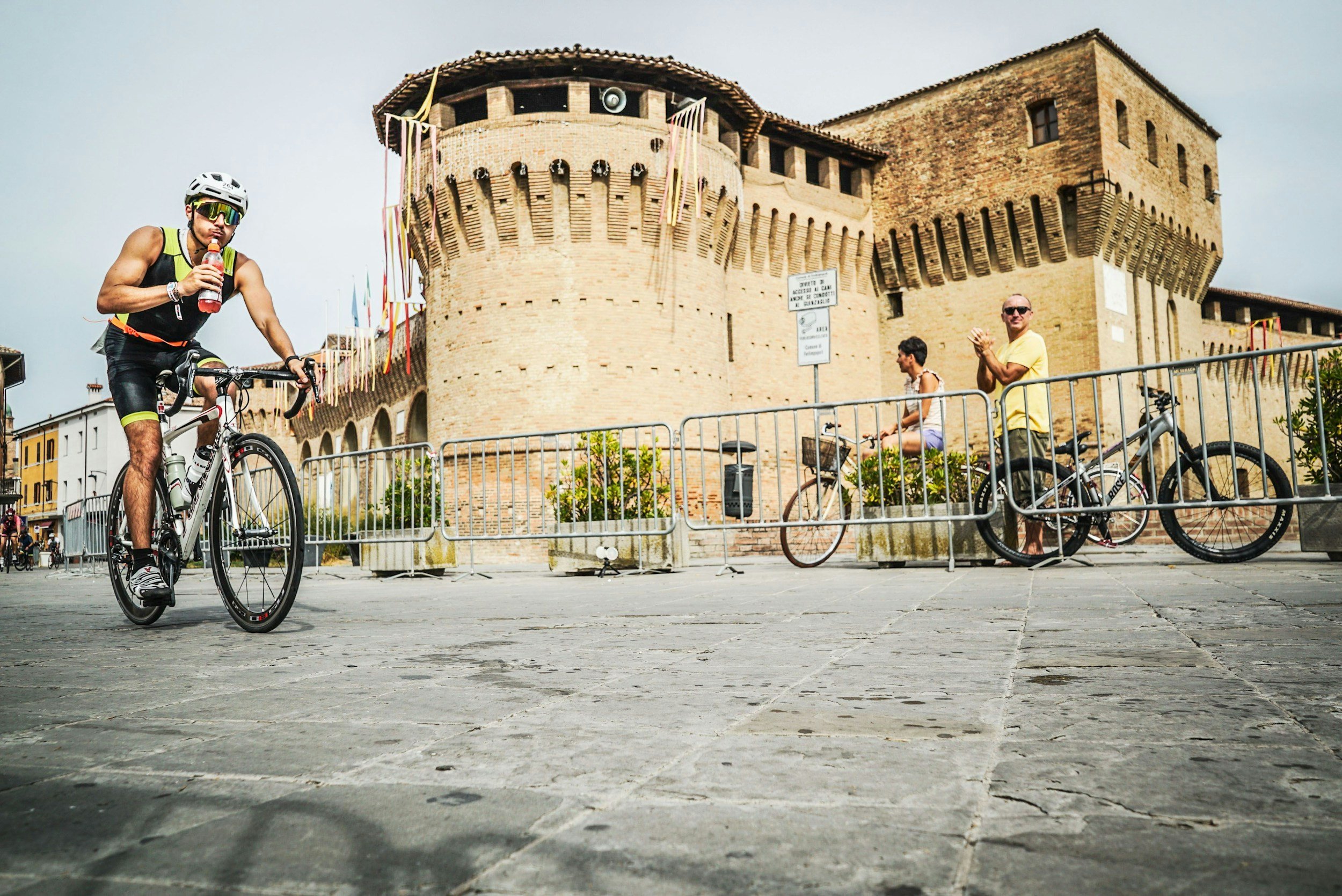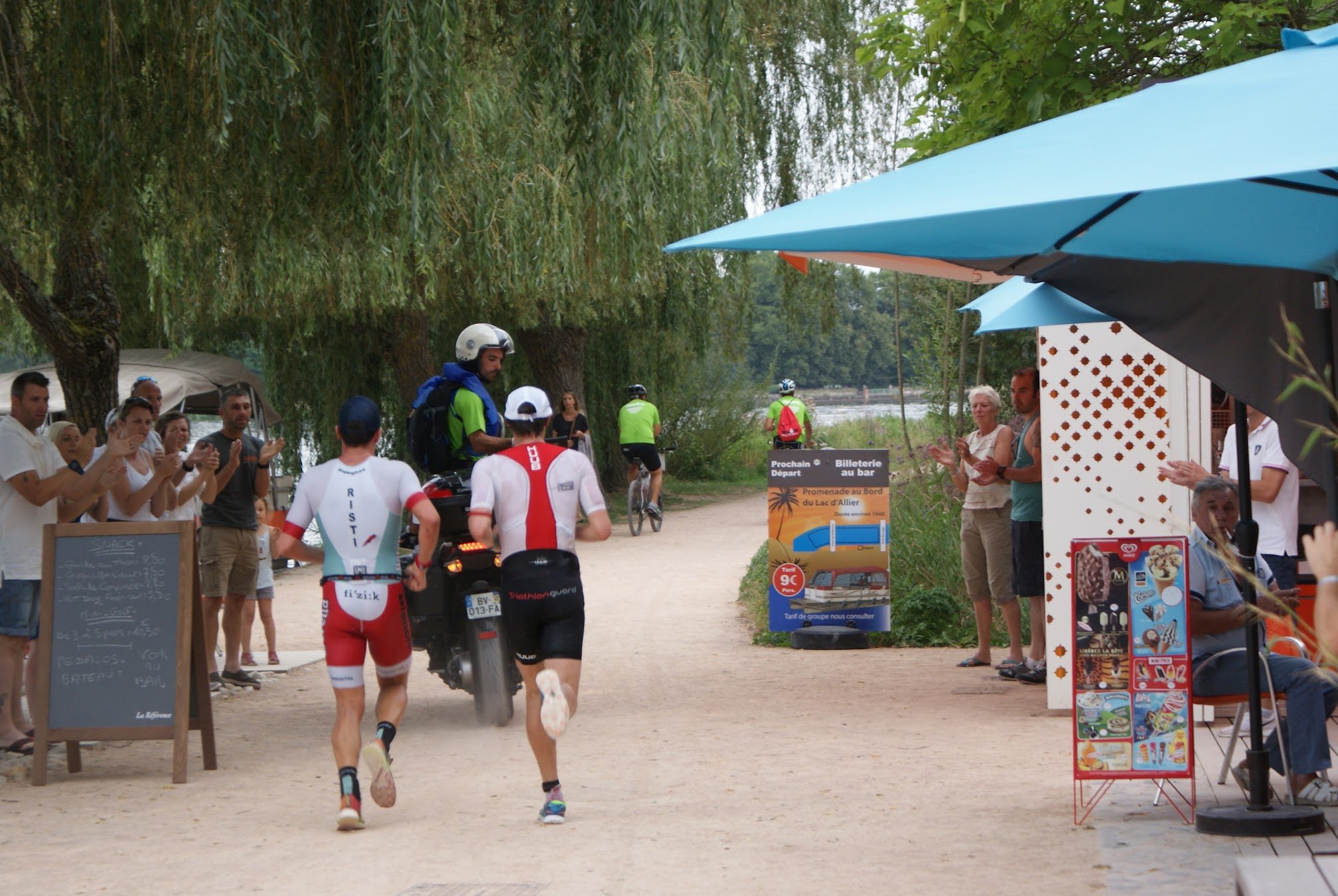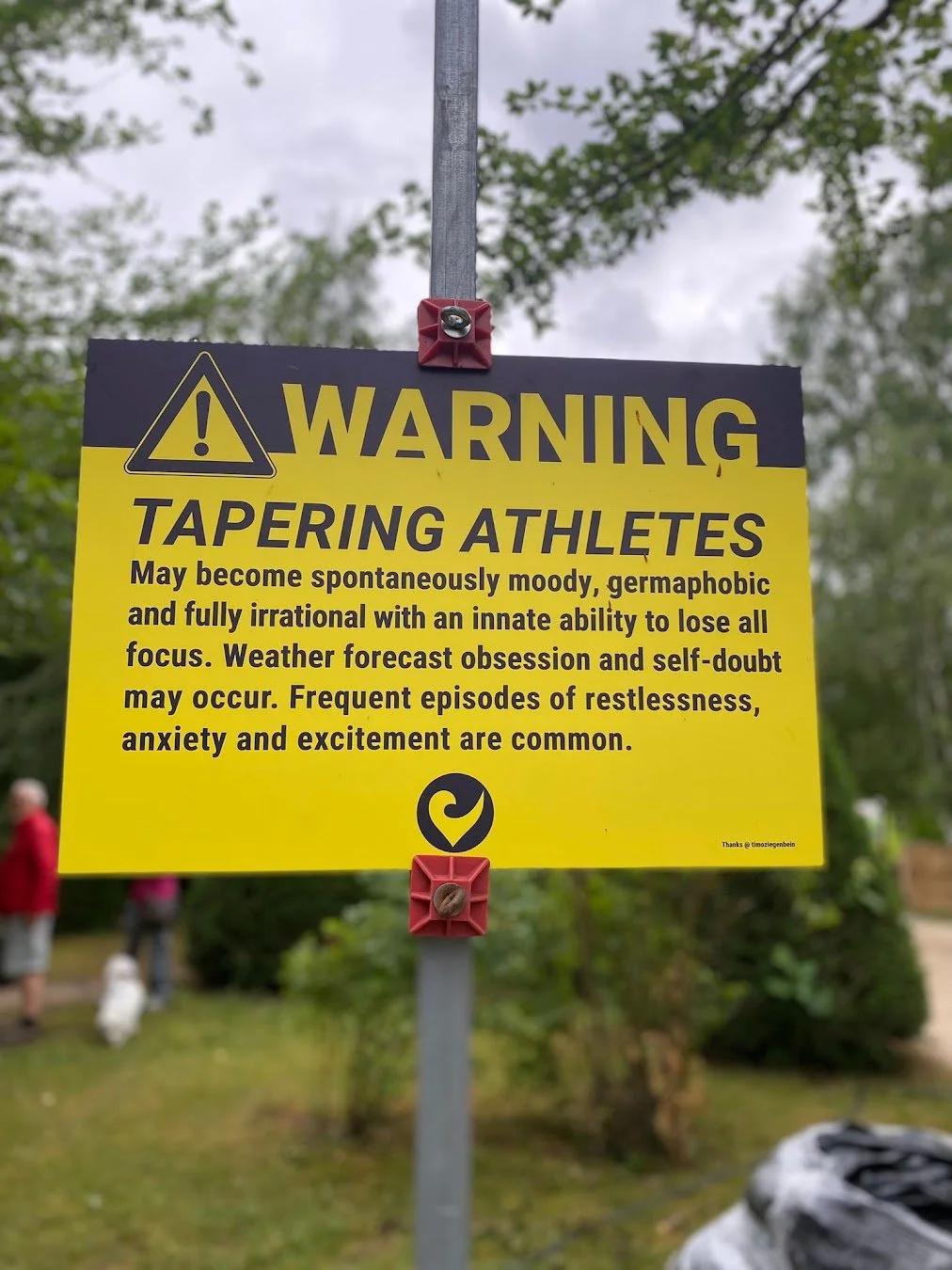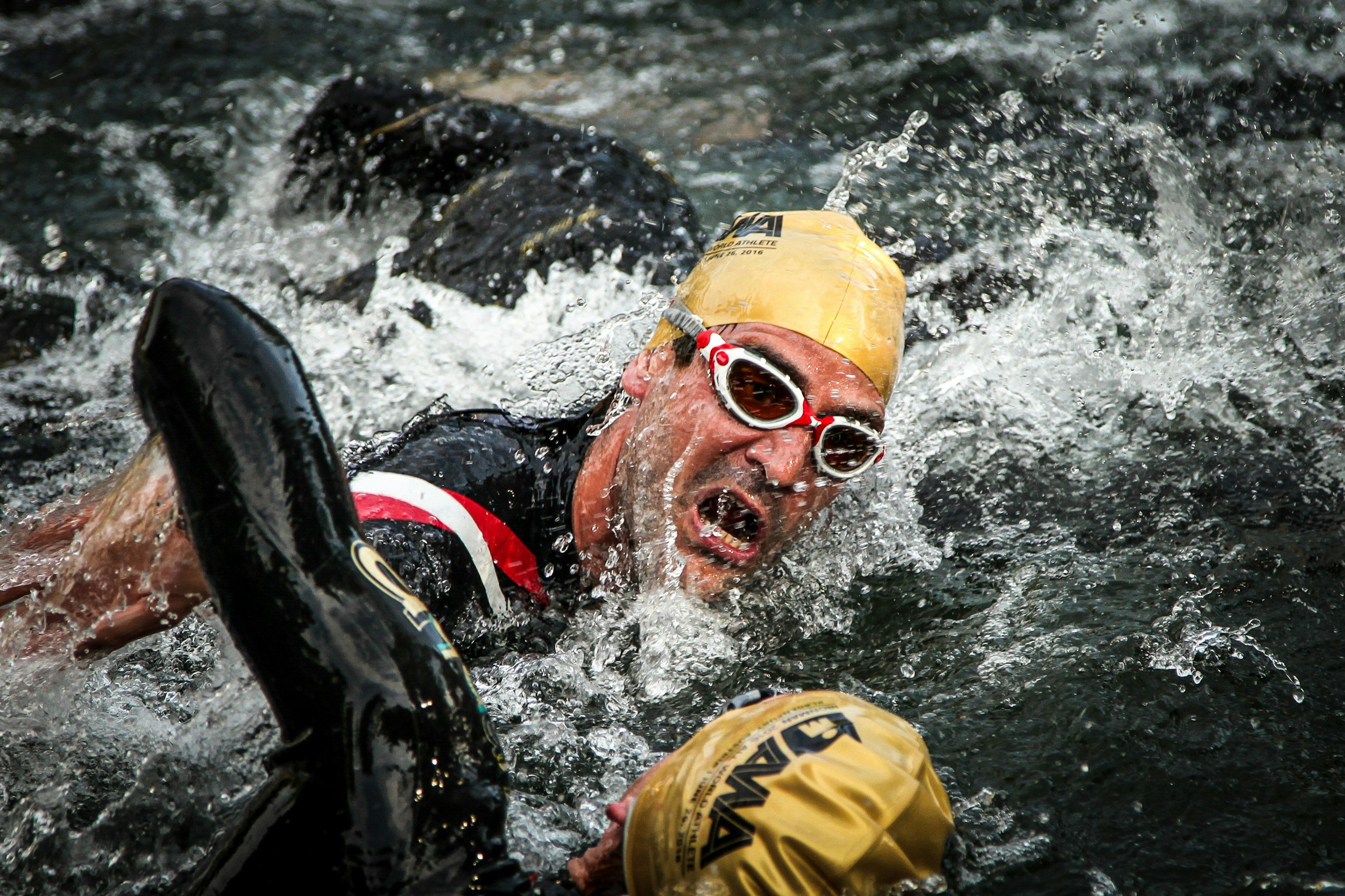
How to train for a Half Ironman:
your 70.3 success guide
Training for a 70.3 triathlon, or half Ironman is an enormous challenge that requires a smart approach. For many, tackling a 70.3 is an endurance bucket list event, and represents an enormous undertaking after having already taken on sprint and olympic distance races. For others, a 70.3 is the perfect blend between the speed of shorter races and the ultra endurance of an Ironman, and as such represents the ultimate triathlon challenge.
Either way, blending endurance, speed, and mental toughness, 70.3s demand a well-rounded plan and a fine-tuned race strategy for you to achieve your goals.
The fundamentals of Half Ironman training
1. A balance of endurance with speed
If you're completely new to long distance triathlon and just getting through a half ironman in under eight-and-a-half hours is your goal, then it might be betetr to take at our guide to completing an Ironman. Although the distances are longer, being out there for almost nine hours will make your effort closer to an Ironman type effort, so a lot of those considerations are applicable to your 70.3 as well.
The majority of 70.3 racers, even first-timers, will be shooting for somewhere between 4:30 and 6:30 finish times. That means you're going to need need both endurance for the longer swim, bike, and run distances of the Half Ironman, but also some degree of speed as this distance is perfromed at a slightly higher intensity than a full distance triathlon. Training for this blend without overexerting yourself requires strategy. Structured sessions allow you to build endurance while staying sharp for race day.
2. Manage time efficiently
We're often asked how many hours per week it takes to train for a 70.3 and our response is always the same: how many hours do you have? In triathlon, you tend to get out what you put in and while athletes can definitely prepare for a Half Ironman on 6-8 hours of training per week, that could look ike closer to 15 hours per week if you're hoping to compete at the pointier end of your age group.
Either way, preparing for a HIM with work and family commitments is a big undertaking and means every session counts. Balancing intensity, rest, and specific workouts is crucial for success and this is why the best prepared athletes on race day tend to be those who've worked with a coach and a personalized training plan.
3. Injury prevention is key
Avoiding overuse injuries is essential in 70.3 training as consistency is really key, but 70.3 trainign can be particularly stressful on athletes’ bodies due to the need to balance pure endurance sessions with the higher-intensity workouts needed for speed.
One way we tend to approach this is by ensuring even more quality in the longer endurance sessions for 70.3 athletes compared to those stepping up to Ironman. We also incorporate effective recovery, mobility work, and strengthening exercises that go a long way in keeping you on track for the big day.
Finally, we lean into technology to firstly ensure that your training zones are accurately established and, secondly, to balance your total training stress to make sure you're never tipping over into the red zone where injuries tend to happen much more frequently.
Good technique is crucial for not only avoiding injuries but also ensuring athletes stay strong and consistent deep into a Half Ironman. We like to start or even end most sessions with some technique work, on swim, bike and run.
As well as the Ironman and Half Ironman (or 70.3), the new T100 distance is gaining popularity. Involving a 2km swim, 80km bike and 18km ride, training for a T100 is a fine-balance between those faster Olympic or Sprint distance triathlons and a traditional Half Ironman.
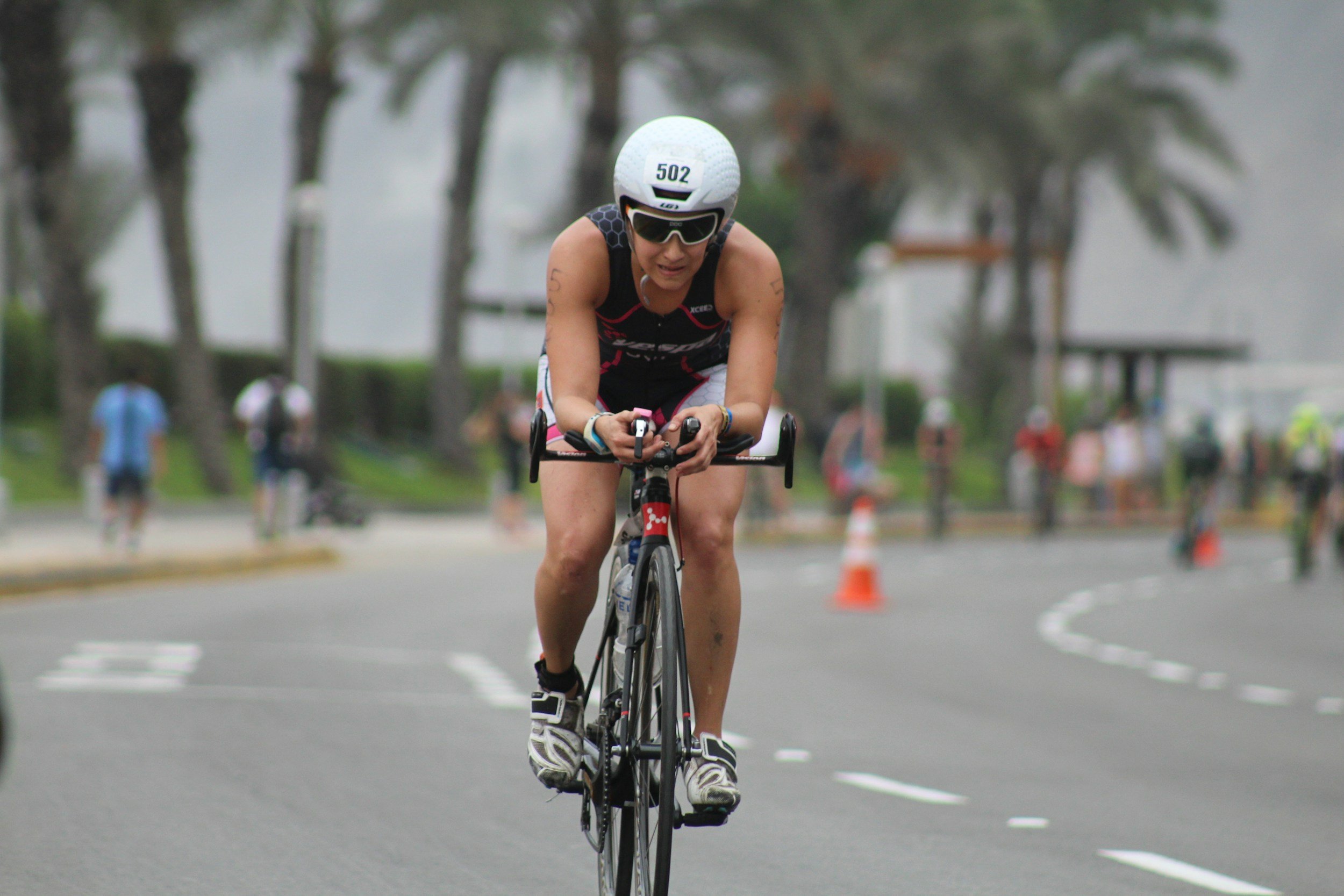
The benefits of a Half Ironman coach
Skim a triathlon magazine, read a forum or take to Google, and you'll find hundreds of free (or cheap) trainign plans that promise to get you off the couch and across a Half Ironman finish line. So why would you pay for a coach?
The way we see it, we're not just here to tell you which traning sessions you shludl do. A good coach is a guide, advisor, friend and motivator, there to helpyou avoid common pitfalls and stay healthy. A coach should also bring the sort of expert gear, course and nutrition knowledge that no training plan covers.
Here's what we see as the benefits:
Tailored Training Plans: Having a raining plan that's purposely tailord around you, your life and your commitments is critical for you to achieve that all-important training consistency. But just as important is a plan that caters for exactly who you are as an athlete and addresses your specific strengths and weaknesses. A coach who takes that approach maximizes your time with efficient workouts that target both endurance and speed.
Expert Feedback: A coach will monitor your training on a regular basis and adapt sessions based on your current levels, missed sessions or illness. They're on hand to tell you exactly how to complete a session or to help you find an alternative when you can't do a session as prescribed. A coach will also provide insights on your form, pacing, and progress to keep you on the right track.
Comprehensive Support: The world of triathlon can be quite overwhelming, especially to newer athletes. Magaziens and team mates will have all manner of recommendations on nutrition, gear, and recovery, but which one is right for you? That's where your coach comes in.
Why choose Motivate Triathlon Coaching for your 70.3 journey?
We take a uniquely holistic approach to Half Ironman training that provides athletes with all the tools they need to succeed – from the latest coaching and testing platforms to race strategies and mentality training. That's what sets us apart from standard coaching services.
Many newer athletes feel like they're "not good enough yet" to have a coach when the reality is that a coach is there to act as a guide and unlock your potential – which is as relevant to new triathletes as it is to seasoned competitors. In fact, the one thing we hear time and time again from our athletes is "I wish I'd started working with you earlier." Ready to elevate your training?
Motivate’s full package also includes:
Metabolic testing: Discover your ideal pacing and fueling strategies based on your unique physiology.
Professional bike fitting: Maximize comfort and efficiency with a fit tailored to your body and endurance goals (in person or virtual).
Nutrition planning: Learn to fuel efficiently to maintain peak energy and avoid mid-race bonking.
Race day strategy: Prepare for every detail, from pacing and gear to optimizing transitions.
Ongoing support: With continuous feedback, we help you prevent injuries, build resilience, and reach your goals.
Learn more about Motivate Triathlon Coaching here.
Book your free no-obligation consult with a Motivate coach by clicking below.
